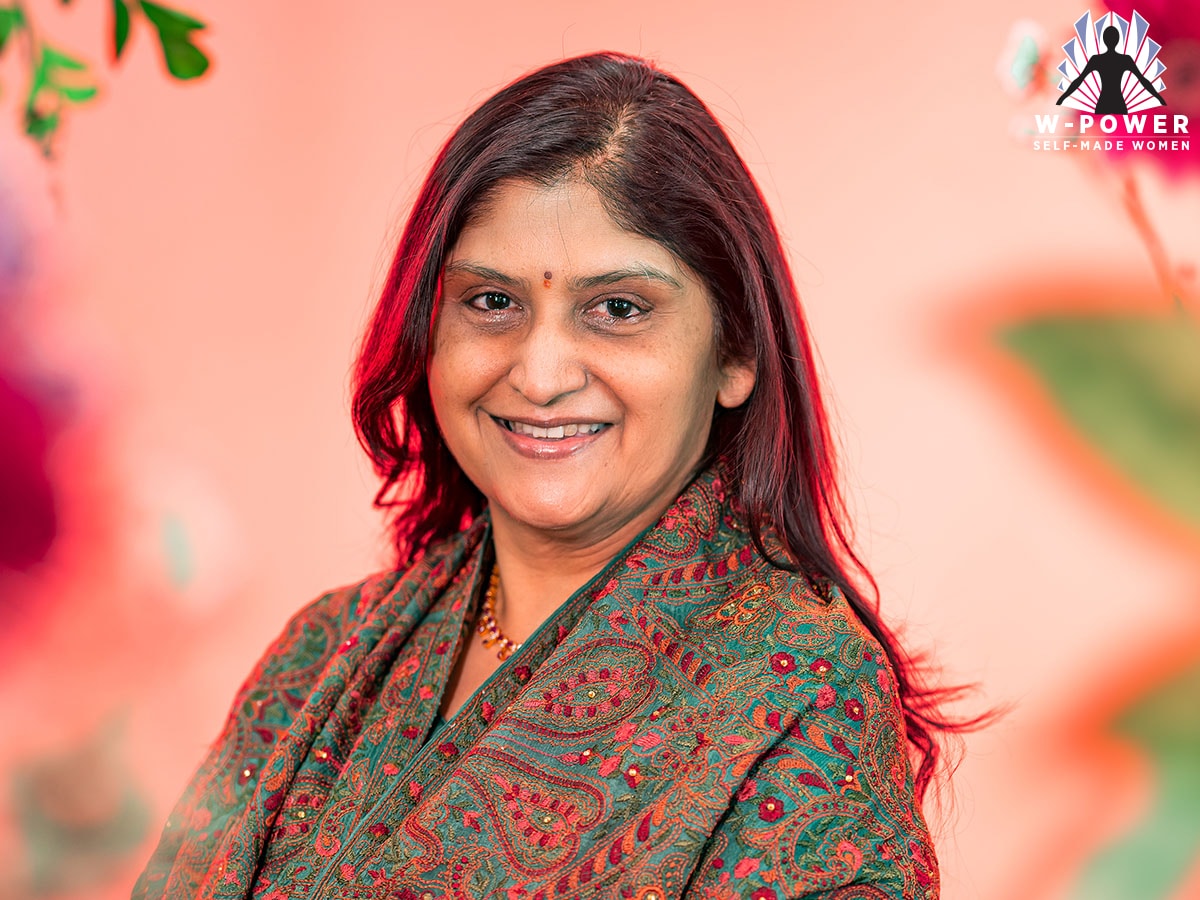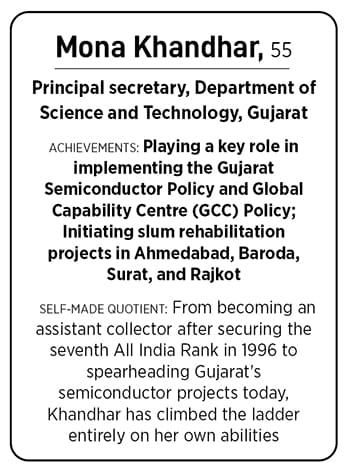 Mona Khandhar, Principal secretary, Department of Science and Technology, Gujarat
Mona Khandhar, Principal secretary, Department of Science and Technology, Gujarat
Image: Mayur D Bhatt For Forbes India
Mona Khandhar, a 1996 batch officer of the Indian Administrative Service (IAS), is known for getting work done on complex assignments. In the many positions she has held through her career, Khandhar has served in Gujarat’s revenue department, urban and rural housing development, and as district officer; she has worked with finance and economic affairs, and launched the state’s e-Gram project to bridge the digital gap between urban and rural populations. She has also represented India as Minister (Economics & Commerce) in the Tokyo embassy between 2019 and 2022.
It is a continuation of this career path that led to her, in 2023, becoming the first woman to serve as the principal secretary, Department of Science and Technology in Gujarat. In this position, she is working on implementing the Global Capability Centre (GCC) Policy 2025-30 in Gujarat, which aims to attract around 250 new facilities, as also the Gujarat Semiconductor Policy 2022-2027. “As a civil servant, I’ve learnt to adapt to new sectors and take the time to understand them thoroughly before planning and implementing strategies,” says Khandhar.
 As part of implementing the Semiconductor Policy, she is overseeing upcoming projects worth ₹1.24 lakh crore in the state, including the establishment of factories by Micron Technologies, Tata Electronics, CG Power and Industrial Solutions, and Kaynes Technology. In supporting the growth of the semiconductor ecosystem in Gujarat, Khandhar is helping build social infrastructure and regulatory support.
As part of implementing the Semiconductor Policy, she is overseeing upcoming projects worth ₹1.24 lakh crore in the state, including the establishment of factories by Micron Technologies, Tata Electronics, CG Power and Industrial Solutions, and Kaynes Technology. In supporting the growth of the semiconductor ecosystem in Gujarat, Khandhar is helping build social infrastructure and regulatory support.
Coming this far has not been a walk in the park for Khandhar. When she joined the IAS, only 12 of her 80 batchmates were women, and the skewed gender ratio often led to discomfort and scepticism about assigning tasks to women. Khandhar recalls facing biases, especially in male-dominated environments, and scepticism about her intelligence and capabilities. “I faced challenges when I demonstrated independent thinking and a unique approach to my work,” says Khandhar. “While feudalistic attitudes exist, I found Gujarat to be relatively egalitarian.”A turning point in Khandhar’s career came when Narendra Modi was elected chief minister of Gujarat. She says that Modi, in a departure from the past, began to assign bigger and more important roles to women. Consequently, she was tasked with preparing policy frameworks for affordable housing and slum redevelopment, and developing an e-governance system at the village level, which evolved into the eGram Vishwagram Project.
(This story appears in the 18 April, 2025 issue
of Forbes India. To visit our Archives, click here.)

